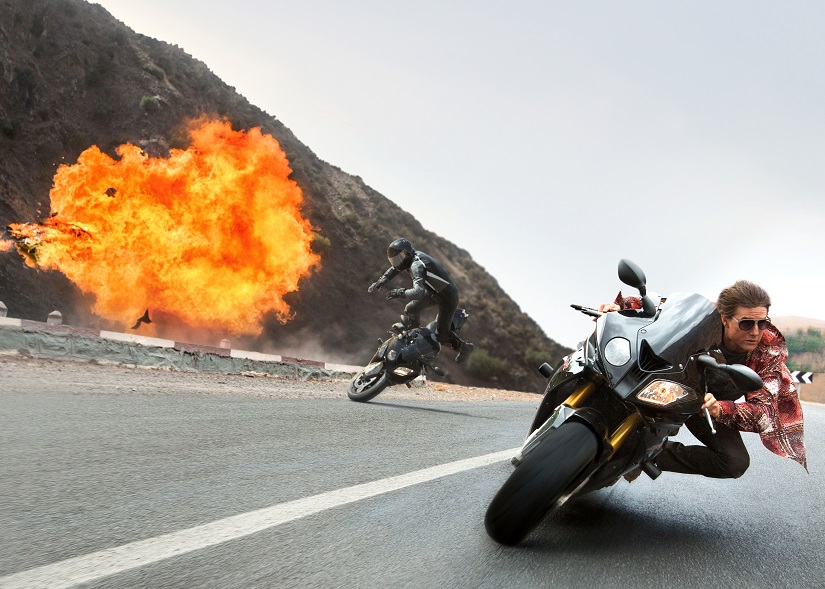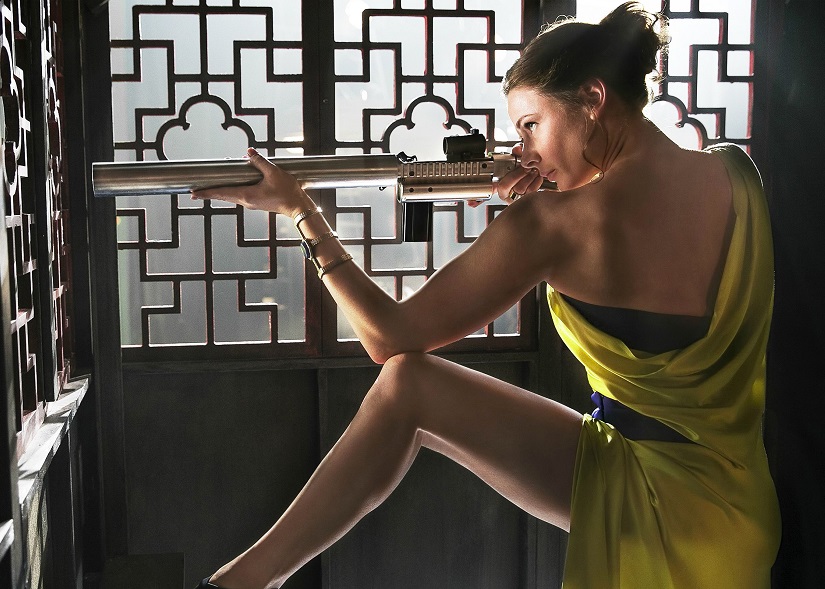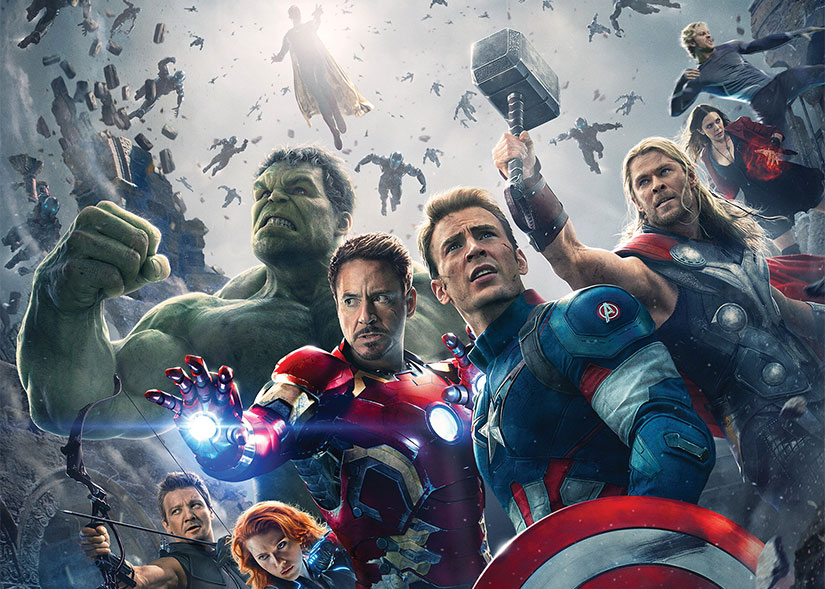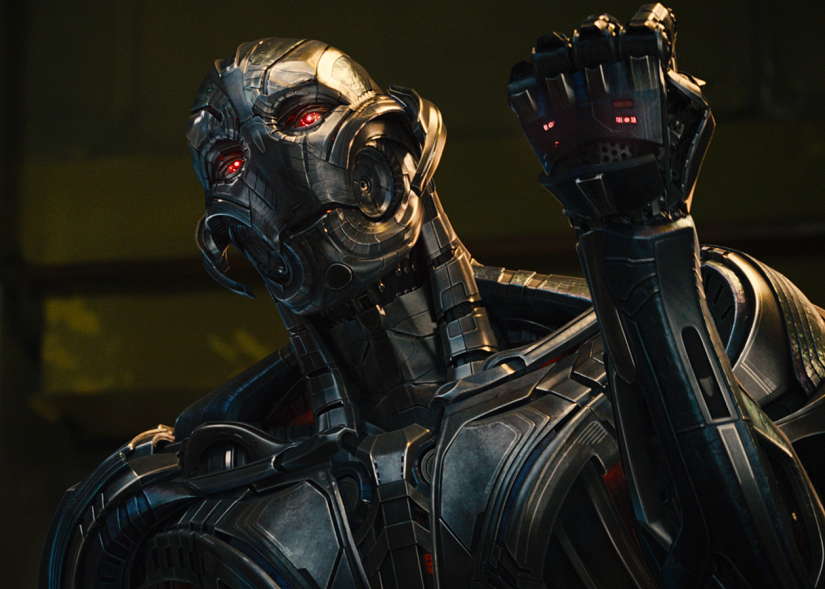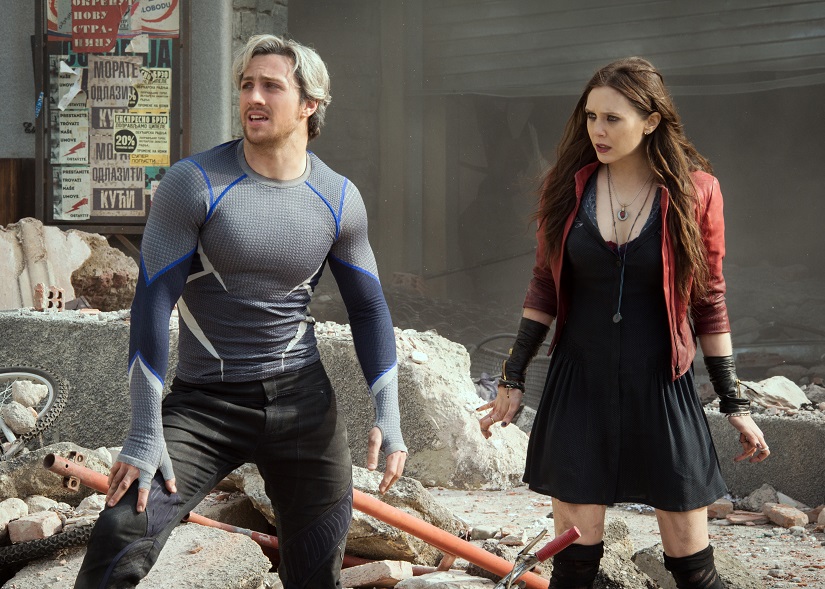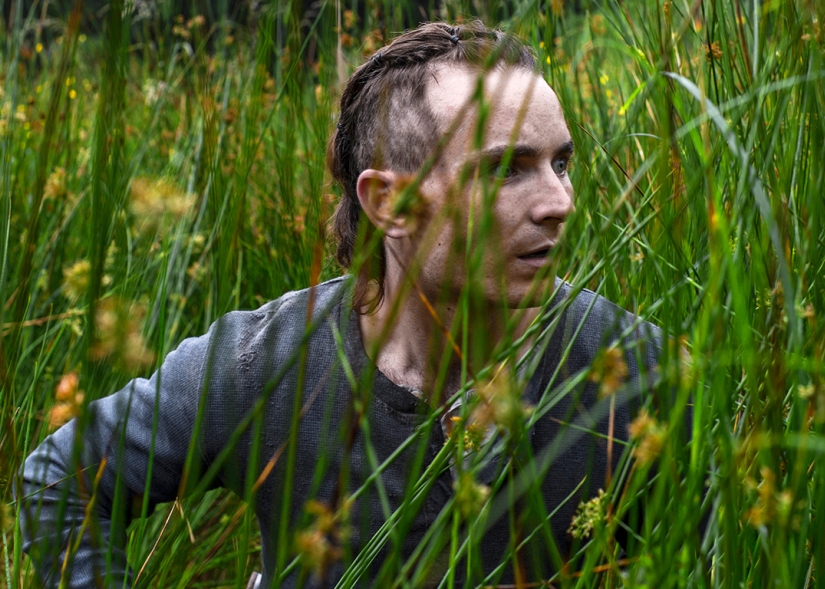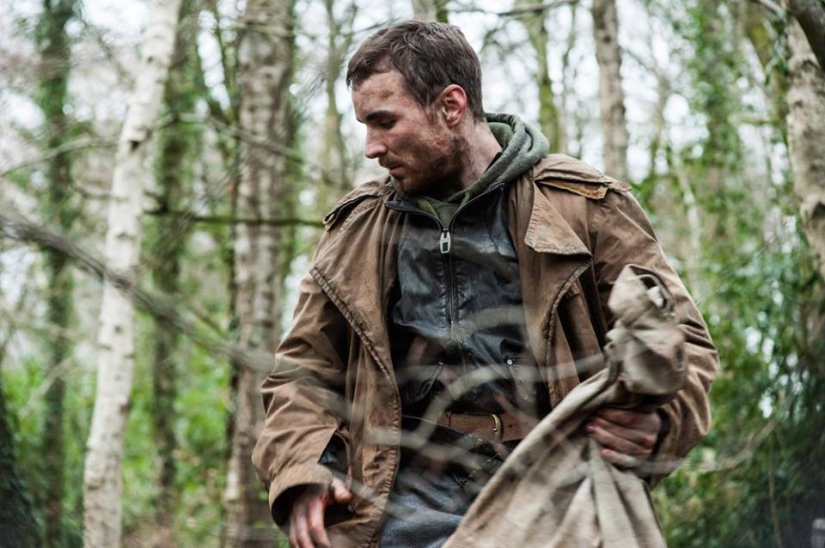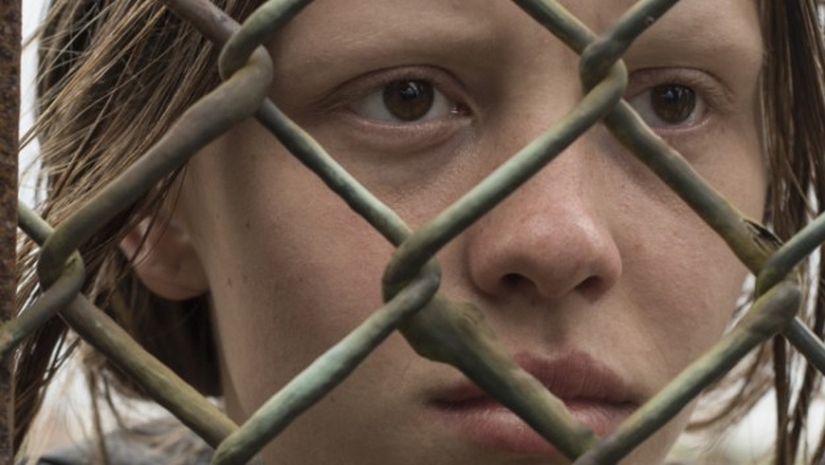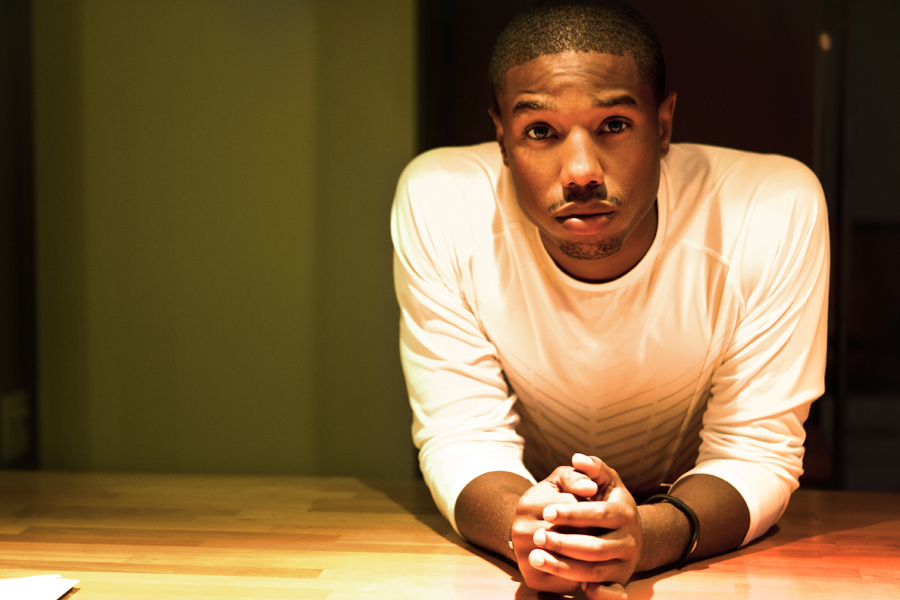[Review] Mission: Impossible - Rogue Nation
In my recaps of the Mission: Impossible movies last week, I postulated that even in this most unpredictable of series, where tone, narrative and character are defined not by formula but the vision of whomever happens to be behind the camera, the movies tend to alternate between the character-driven suspense of the first and third entries, and the live action cartoons of the second and fourth. From the trailers, you'd suspect Rogue Nation was set to break the cycle and consolidate the successes of Brad Bird's Ghost Protocol. In fact, Rogue Nation is every bit as much the product of its director as previous movies and its successes and failures are far more akin to those of the odd-numbered entries than the even ones.
McQuarrie's voice is not as immediately clear as that of De Palma, or Woo, or Abrams, or Bird, but there are clear traces of his previous work in Rogue Nation's DNA. There's the twisting allegiances of Usual Suspects, which he wrote; the slow-burning suspense and disenchantment with politics and governments from Valkyrie; a hint of The Tourist's globe-trotting caper; more than a splash of Jack Reacher's love of crunching physical violence, both personal and mechanical. That these traits are more disparate than those belonging to previous series directors leads to the movie struggling for a coherent tone, even if several of its individual notes are terrific. Somehow, that inconsistency allows it to be both its own thing and also the closest thing yet produced to a 'typical' Mission: Impossible movie.
[youtube id="pXwaKB7YOjw"]
Mission: Impossible - Rogue Nation
Director: Christopher McQuarrie
Rating: PG-13
Release Date: July 31st 2015
The much-trailed airplane stunt kicks off the movie and summarises much of why there continues to be a fondness for the series, sometimes in spite of itself. The entire sequence has next to nothing to do with the rest of the movie, but combines a real sense of danger and adrenaline with a winking sense of humour acknowledging the silliness of what is happening without undermining it. That dedication to over-the-top physical stuntwork generates and deserves huge amounts of goodwill, especially with Tom Cruise's fervent dedication to performing every fresh act of lunacy himself. It's a lost art these days, rarely seen since Roger Moore's tenure of the James Bond series, even if Moore let his stuntman do much of the hard graft. As an aside, it's interesting how much Rogue Nation, intentionally or not, draws on precedents from the Bond movies. The plane stunt is a larger scale version of similar efforts from Octopussy and Living Daylights, for instance, while aficionados of both series will spot a number of recurring motifs, not least in the villainous Syndicate being a brazen analogue for SPECTRE. With that organisation soon to make a return, you have to wonder if Cruise and McQuarrie hoped to nip in and bag a bit of the glory first.
After that typically spectacular intro, the movie settles down into something more unexpectedly low-key. Aside from an overextended car and bike chase somewhere around the midpoint, most of the major set-pieces revolve around tension and one-on-one fights rather than escalating the spectacle. The decision is an admirable one, but doesn't quite pay off as fully as it could as a result of shortcomings elsewhere. The first half is significantly more compelling for the fact that the Syndicate and its operatives and motives remain mysterious and unknown to both audience and protagonist. Ethan Hunt, going rogue for the fourth time in five movies in a gimmick that has gone beyond eye-rolling into resigned acceptance, feels out of his depth and struggling to keep up with enemies he's unable to even clearly identify, imbuing him with a sense of the underdog despite his superhuman physical capabilities. The apex of this, in both the high point of the movie and one of the series' strongest scenes, is his attempt to stop a Syndicate hit on the Austrian chancellor during a performance of Turandot at the Viennese opera. It's a perfectly paced sequence where a number of players of uncertain allegiances and motives play off each other in perfect musical and thematic timing to the opera taking place in the background.
In the middle of it all is Rebecca Ferguson's immaculately named Ilsa Faust, the double-triple-maybe-quadruple agent who is the movie's best developed and most engaging character by far. As the series continues to struggle to find any sort of identity for Hunt beyond 'Tom Cruise jumping off stuff', Ilsa is ferociously powerful, fiercely intelligent and vulnerable in a way which allows her to be grateful for help without making it seem as though she couldn't, in a pinch, save her own hide on the back of her talents. She drives the narrative far more than Hunt, who, like Max Rockatansky, mostly follows her lead and serves as a useful tool for disentangling her from the zero-sum situation into which she has been placed. Ferguson's performance enhances an already complex role, distinguishing between the character's professional deviousness and her personal humour and pragmatism. Aside from a strange two or three minutes where the camera twice lingers slightly too long on her bottom, her sexiness is played to emphasize her strength and is always under her control. In the end it's a relief she ends up friendzoning* the ever sexless Hunt, who is nowhere near as interesting a leading man as she deserves, no matter how often the movie farcically tells us he is 'the personification of destiny'.
That Ilsa represents one of so many strong elements which the movie puts into play in its first half only emphasizes how disappointing it is when they all start to fall in on each other in the second. Ilsa virtually holds the movie up on her own, but even she gets sidelined more and more as the screenwriters remember that Hunt, unfortunately, should probably start participating in the narrative of his own movie. The plot's unknown elements are a rich source of intrigue early on, but undermined with every new reveal. The Syndicate's motives are imprecise at best, their plan barely substantial enough to merit the use of the word, and their numbers seemingly comprise little more than leader Solomon Lane (Sean Harris) and a few bodyguards. Where the plotlessness of Ghost Protocol worked because that movie was basically a cartoon, here we are asked to take the stakes seriously, making the myriad logical fallacies and situational contrivances all the more apparent. A late scene in which Hunt and co. apprehend the British Prime Minister at a charity auction devolves into a non-stop stream of exposition, none of it enhancing the plot or characters and tying itself in knots to emphasize poorly developed themes while contriving to explain why none of the characters are going to be arrested immediately afterwards.
As the main villain, Solomon Lane is seemingly aiming for something along the lines of the psychopathic bureaucrat that Philip Seymour Hoffman embodied so perfectly in Mission: Impossible 3, but instead comes across as an annoying, whiny doofus, achieving what little he does through the ineptitude of others rather than his own competence. The bafflingly ridiculous manner in which he meets his fate, the last note of an already anti-climactic climax, is one of a series of misjudgments casting a character intended as creepy and sinister as meek and ineffectual instead. The movie never descends into being outright bad, but its inability to produce satisfying or even logical answers to the questions so enigmatically posed lead to the whole thing coming perilously close to collapse. As the first movie proves, low-key suspense can be an extremely effective tool in the action genre, but only when the writing is strong enough to fill the gap left by the absence of bombast, which is sadly not the case here. Ferguson's Ilsa is worth the price of admission on her own and then some, to the extent that I'd be far more excited about her getting a spin-off of her own than a sixth entry in a series which continues to only just delight more than it frustrates.
*And yes, before someone asks, I am using the notion of 'friendzoning' entirely sarcastically.
[Review] Avengers: Age Of Ultron
The Avengers was not just the movie which brought Marvel's cinematic universe heroes together on-screen for the first time, but also the one which found a consistent tone and philosophy for the series going forward. Looking back at the earliest movies in the canon, it's no surprise that despite their financial success, they tend to be all over the place in terms of tone and direction, heavy on formula but uncertain where to pitch their flag between the campy humour of comic book movies past and the heavy drama of Christopher Nolan's hugely successful Batman movies for DC.
It was at the hands of experienced comics writer Joss Whedon that Marvel found a sense of fun and self-awareness to bridge the disconnect between building a straight-faced fictional reality and the wisecracking, elaborately costumed protagonists populating it. As DC struggles to make fans care about its efforts to build a universe of its own defined by tortured heroes and depressingly over-filtered visuals, Marvel has gone from strength to strength on the back of Whedon's simple but appealing philosophy of keeping the characters relatable and the tone light. It's unfortunate, then, that Age Of Ultron does not mark Whedon once again taking the Marvel cinematic universe movies to new heights, but instead proves that even the most successful philosophy will struggle when weighed down by repetitive storytelling.
[youtube id="JAUoeqvedMo"]
The Avengers: Age Of Ultron
Director: Joss Whedon
Rating: PG-13
Release Date: May 1st, 2015
The Avengers' success may have solidified the Marvel universe, but also allowed some core problems to go overlooked. It was and remains a blockbuster done right, hitting a near-perfect balance between large-scale action, pinpoint character writing (compare, for instance, Whedon's Black Widow to her nondescript 'strong woman' portrayal in Iron Man 2) and humour. After taking $1.5bn at the box office worldwide, it's no surprise Marvel sought to replicate its success as closely as possible going forward. While this meant movies more ambitious in their scope and tonally unified throughout the series, it also too often reduced their narratives to a single, over-used formula. It boggles the mind to try and tally how many Macguffin-oriented plots, fake deaths, identikit character arcs and city-levelling finales have occurred in the four movies since the first Avengers, let alone those which were toying with the same ideas beforehand.
Age Of Ultron never looked likely to break that formula, but starts at a lively enough pace with a big set-piece as our eponymous heroes storm a HYDRA outpost in Eastern Europe. It gets us quickly into the swing of things, and Whedon is gifted enough with the off-handed zingers that the personalities of each individual hero are asserted without needing to pause for breath. What the team discovers also neatly lays down a potential dividing line between them based on how they perceive their ongoing role in defending the planet. Ultron presents a rare villain whose world-ending ambitions are rooted in a distinct way of thinking, one that can be clearly traced back to some of the decisions which led to his creation. It also allows him to recruit the Maximoff twins, whose supernatural powers bring another new kind of threat to the Marvel universe. So far, so good. Nothing groundbreaking, but tight, fun and brisk.
That promising start begins to falter once the heroes are given their first glimpse of the psychological manipulations of Wanda Maximoff, aka Scarlet Witch, in a set of sequences geared exclusively towards setting up future movies. This recalls the worst of Iron Man 2's indulgences in using its time to promote future movies rather than creating a worthwhile experience in the present. It also leads into a mid-point lull where Whedon, having so effortlessly integrated character and plot up to that point, grinds the movie to a halt for the sake of Capital Letter Character Development that not only retreads the same steps as previous movies, but almost entirely through static conversations taking place in the most blandly clichéd location imaginable. With the movie coming in at a laboured 140mins, it's hard to imagine how no-one thought to discard, at the very least, two vapid romantic subplots which clog up the pacing and never feel like anything other than writer-enforced indulgences.
In addition to the contrived writing, Whedon's biggest obstacle in making his characters relatable is the same as that which makes his action sequences feel so insubstantial. Iron Man 3 got a lot wrong, but one thing it understood, and The Avengers didn't, is that there needs to be a palpable sense of risk for its action to be any more meaningful than empty spectacle. As in the first Avengers, Whedon's heroes never take so much as a scratch, so their musings on death and loss come across as entirely hollow. The absence of danger means the action relies entirely on a sense of awe to remain entertaining, yet the CGI-heavy nature of each encounter renders each increasingly interchangeable and wearying, culminating in a climax lifted almost verbatim from the first Avengers, only replacing aliens with robots and Loki's wormhole generator for a Big Deadly Button.
Of the new ingredients, James Spader's voice work keeps Ultron interesting for longer than the character has any right to be, given how quickly the script abandons his initial existential angst in favour of generic supervillainhood and a subplot which ignores a key facet of his interconnected nature to facilitate the creation of The Vision. Vision himself feels entirely superfluous, showing no particularly noteworthy abilities beyond those already on offer from Iron Man and Thor, despite being at least visually striking and sharing an enjoyable exchange with Thor about the merits of a well-balanced hammer. Elizabeth Olsen's Scarlet Witch fares better than Aaron Taylor-Johnson's bland Quicksilver, if only for presenting a different kind of threat than punching or zapping. Once they are actually put to work, however, it is again difficult to discern what they bring to the table which one of the existing heroes could not have provided with minor adjustment.
Strip away the bombast and superfluous additions and it is the core cast which just about keeps the movie going even while the messy direction and clunky pacing are compounding around them. Downey Jr gives one of his stronger recent performances as Tony Stark, while Scarlett Johansson continues to layer pain into Black Widow's snark. Chris Hemsworth, Chris Evans and Mark Ruffalo are underserved with worthwhile material, but make the most of what they have. Jeremy Renner has the opposite problem, enjoying plenty of screentime, but most of it among the movie's most insufferable. That he manages to make the character likeable regardless is testament to the small notes of empathy and stoicism he finds in his character's interactions with others. A handful of cameos from the supporting cast of the individual hero movies, such as Don Cheadle's Rhodey, also make very welcome reminders of each hero's existence beyond the confines of the Avengers team.
If you are, unlike me, an avid comic book reader, the appeal of another two hours of watching these characters bounce off each other, verbally and physically, may be enough to make Age Of Ultron another worthwhile entry in Marvel's cinematic universe canon. No matter where you are coming from, though, it is difficult to imagine anyone seeing this as anything more than a case of returns diminished by repetition and playing safe, at worst an unnecessary stepping stone en route to the real showdown in Infinity War. Whedon remains quick of wit and matched by a terrific cast, but where the first Avengers gave Marvel a newfound confidence going forward on screen, Ultron is less a shot in the arm than a warning of how complacency can dull even the most vibrant pleasures into formulaic endurance tests.
[Tribeca Review] The Survivalist
In most post-apocalyptic movies, the predominant colors are brown and gray, as if the only things that can exist in this fallen world are dirt, soot, and some muddy combination of the two. In Stephen Fingleton's assured feature film debut, The Survivalist, the post-apocalytic world is green instead, lush and overgrown now that the human population is too low to mess it up. Yet like Werner Herzog said about the anarchy of the jungle, this kind of wildness is cruel, and everywhere it's full of murder and death.
The world of The Survivalist isn't just overgrown, though. It's quiet out there, and in that sinister, a-little-too-quiet way. Our title character (Martin McCann) lives on his own in the wilderness in a sustainable cabin for one. Think Henry David Thoreau's Walden, but with the occasional raiding band of cannibal scavengers.
The Survivalist
Director: Stephen Fingleton
Rating: N/A
Release Date: April 16, 2015 (Tribeca)
The survivalist doesn't say a word as he goes about a series of routines: he buries a body, he chops firewood, he plants vegetables, he makes lantern oil, he jerks off. When a mother and daughter (Olwen Fouere and Mia Goth) arrive asking for food, there's finally some dialogue. They look like a pair of backpackers, but their mere presence is menacing. What the two women are asking for may not match their motives, and the survivalist's intentions may not be so pure either. The way they negotiate suggests that this is how the world works now: all interpersonal interactions are types of transactions (even sex) carried out with quiet suspicion.
The lack of dialogue in The Survivalist is so full of potential meaning and scheming thanks to the grim look of the cast, and Fingleton finds surprising power in his expert control of images and silences. The control is apparent with his clever presentation of a graph that opens the film. A red line courses along a black screen representing the increase of human population since the middle ages. A blue line appears representing oil production, and the two lines rise together, abandoning specific decades and centuries. Eventually the blue line dips from view, and we follow the red line as it changes its orientation on the screen into decline.
That's the history of a post-apocalyptic world told in two phrases, a handful of numbers, two lines, and the illusion of motion.
When one of the characters is in danger, a crane shot moves over a field of tall grass with controlled purpose—like the rise and fall of the infographic line, like the dread of a drawn-out note on violins. The audience sees the danger in the field that our hero can't see, and the audience also knows something about the situation that our hero doesn't realize.
The Survivalist takes advantage of the limitations in a character's knowledge. It enhances a number of tense moments throughout the film, where a brief beam of light in the dark is a herald of doom, or even the way a character selects and holds a garden tool seems like a prelude to murder. Everything and everyone is so on edge because the world is out to get them. The Survivalist is all about the pervasive suspense of the quiet and unseen world, and also the unknown and unspoken aims of other people.
Fingleton's visual panache drives most of the film's mood, though the grounded performances lend subdued desperation to the proceedings. McCann has a feral kill-or-be-killed edge, and Fouere has a fox-like mien that suggest she's always calculating her next move; Goth seems so withdrawn, by contrast, and it's difficult to tell what her character's feeling or if she feels much at all anymore. That's the reality of the world of The Survivalist, though there's something harsher that all the characters have come to accept: even small changes in routine can mean the difference between life and death.
For more information on The Survivalist and to find out about screenings/tickets for the Tribeca Film Festival, click here.
Michael B. Jordan might be a slam dunk for Independence Day 2
Michael B. Jordan made some early waves in his roles in The Wire, Friday Night Lights, and Chronicle, has received critical acclaim for his role in Fruitvale Station, and is set to portray the Human Torch in Chronicle director's upcoming Fantastic Four reboot. Now, early reports have come out that Jordan is being targeted for a major role in Roland Emmerich's Independence Day 2.
With Independence Day proving to be one of the largest summer blockbusters of all time, a major role in the sequel would be a huge career move for Jordan. The proposed script involves the film taking place 20 years after the original film and revolving around the children of the original film's characters. Jordan playing Will Smith's son with a potential team-up/cameo between the two in the film? I'm in.
Note: Michael B. Jordan has no relation to the Chicago Bulls star and actually doesn't like the comparisons to Mr. 23.
[via Collider]

